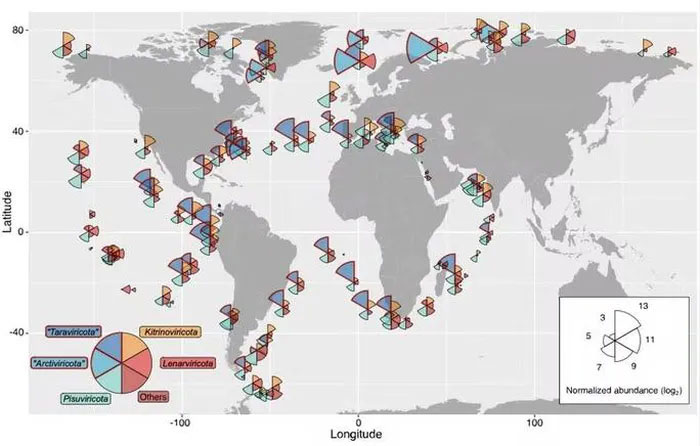A new study from Ohio State University (USA) reveals that the RNA virus family – of which SARS-CoV-2 is a member – is much larger than we previously thought. This discovery has significant implications for evolutionary biology and pathology.
According to the article published in Science, a total of 5,504 previously unknown RNA virus species have been identified in an analysis of genetic material in the oceans, effectively doubling the estimated number of biological groups of viruses believed to exist.
RNA viruses are most commonly known for the diseases they cause in humans, ranging from the common cold to Covid-19: SARS-CoV-2 and its “relatives” are also RNA viruses. Many viruses that infect plants and animals are also RNA viruses.

Distribution map of RNA viruses across the oceans – (Photo: Ahmed Zayed and colleagues)
These tiny “monsters” carry genetic information in RNA instead of DNA and evolve at a much faster rate than DNA viruses.
According to an article in The Conversation by the research team led by Dr. Ahmed Zayed, a microbiologist from Ohio State University, RNA viruses play a crucial role in our ecosystem by infecting a variety of organisms, including bacteria, thereby impacting the environment and the planet’s food web at a chemical level.
Therefore, the identification of thousands of new species will help scientists gain a better understanding not only of the evolutionary history of RNA viruses but also provide important data about the evolution of early life on Earth.
To reach this significant discovery, scientists screened a global database of RNA sequences from plankton collected during the four-year global Tara Oceans expedition research project.
Plankton wander throughout the oceans and are common hosts for RNA. The AI-based screening process helped identify over 44,000 virus-coding genes.


















































